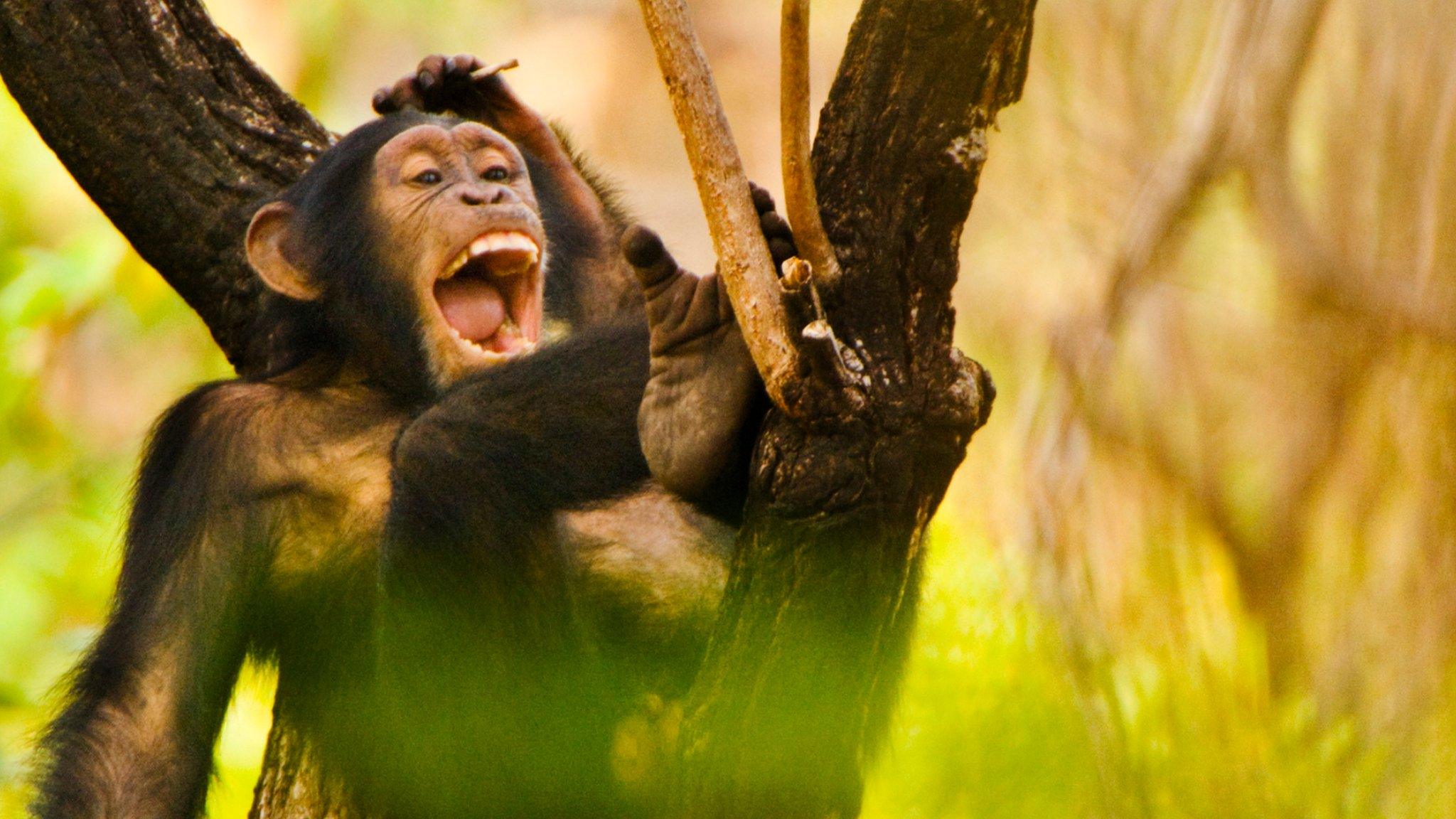Chimps with tools: Wild ape culture caught on camera
- Published
Lead researcher on the chimp study, Dr Catherine Hobaiter, explains how the new type of tool use spread through the group of animals
Researchers have captured the spread of a new type of tool use in a wild population of chimps.
They say this is the first clear evidence of wild chimpanzees developing a new culture.
As the team filmed the animals at a field station in Uganda, they noticed that some of them started to make a new type of leaf sponge - something the animals use to drink.
This new behaviour soon spread throughout the group.
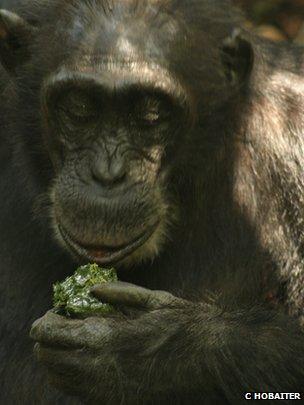
Leaf sponges allow wild chimps to drink from watering holes
The findings are published in the journal Plos Biology, external.
Lead researcher Dr Catherine Hobaiter, from the University of St Andrews, explained that chimps make and use folded up "little sponges that they dip into ponds and then suck the water out".
"We were insanely lucky," she told BBC News. "We saw two new versions of this tool use emerge in the chimps [we were watching]."
Dr Hobaiter noticed a dominant male chimp using moss rather than leaves to make his sponge.
Another picked up an old sponge that another chimp had been using and started using that.
"It might sound trivial, but the chimps [we study] just don't do that," she told BBC News.
"And both of these new versions of the tool use started at this water hole that we had amazing filming access at."
As she sat filming and watching the chimps, Dr Hobaiter saw this behaviour spread from individual to individual.
"Basically, if you saw it done, you learned how to do it, and if you didn't you didn't," she said.
"It was just this wonderfully clear example of social learning that no-one had in the wild before.
"We've had that in captivity, we've had indications in the wild, but this was the final little piece of the puzzle."
Chimp technology
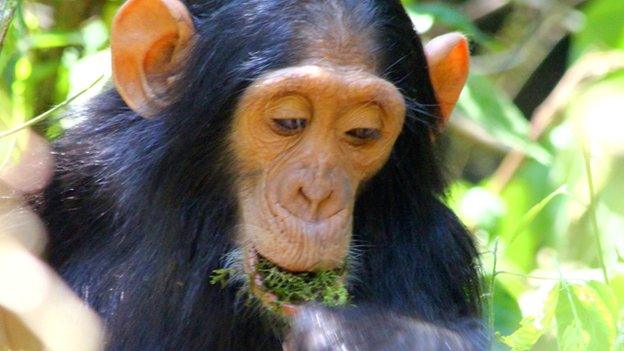
Using moss seems to make a slightly more advanced drinking sponge
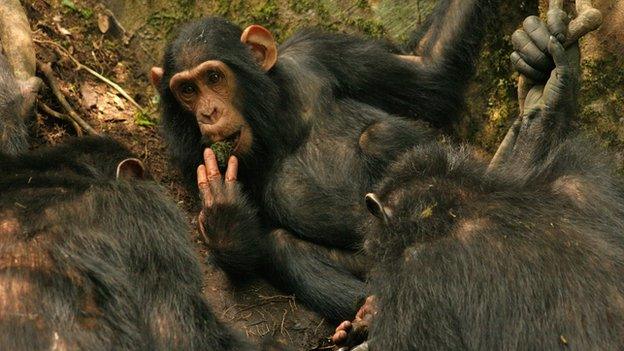
As the researchers watched the animals, they saw the behaviour spread from chimp to chimp
The team of researchers from Anglia Ruskin University, external and the University of Neuchatel in Switzerland analysed the video to work out exactly how the new tool developed and spread.
Dr Thibaud Gruber from the University of Neuchatel explained that the fact that the new behaviours were "variants of the old, well-known sponge-making technique" suggested that chimpanzee culture changes "little by little" - building on previously acquired knowledge to improve an existing tool repertoire.
"With respect to humans, our findings strongly support the idea that the last common ancestors of chimps and humans could learn cultural behaviours from each other, in a similar way," he told BBC News.
Dr Susanne Schultz from the University of Manchester said it was not surprising that chimps used this social learning: "We know from captivity that they are more than capable," she said.
"But there are so few studies that can demonstrate its utility in the wild, and for this reason this paper is a big step forward."
- Published4 July 2014
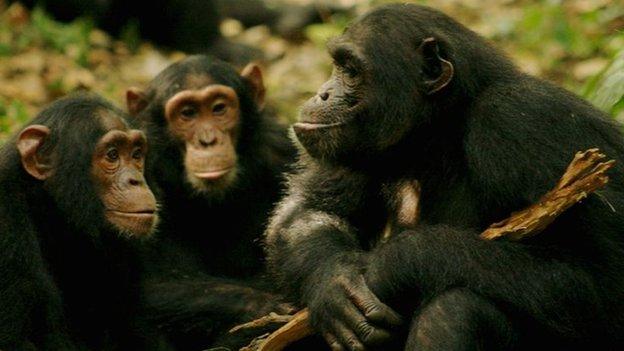
- Published30 May 2013
